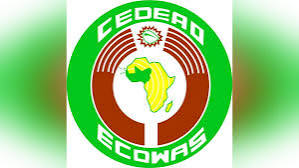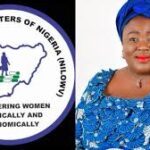IS DEMOCRACY UNDER SIEGE?ECOWAS Remains the Pillar for Promoting good governance in West Africa
By Raymond Enoch
West Africa stands at a critical juncture, grappling with challenges to democratic governance amid a series of military coups, constitutional manipulations, and civil unrest. While some nations strive to uphold democratic principles, others face significant setbacks, raising concerns about the region’s stability and future.

In July 2023, Niger experienced a military coup that ousted President Mohamed Bazoum. The ruling junta has proposed a five-year transition to civilian rule, a timeline that has drawn criticism both domestically and internationally. This extended period under military governance raises questions about the junta’s commitment to restoring democracy and the potential implications for civil liberties during this inte
Both Mali and Burkina Faso have undergone military coups in recent years, leading to the suspension of democratic institutions. In a significant regional shift, these nations, along with Niger, have withdrawn from the Economic Community of West African States (ECOWAS) and formed the Alliance of Sahel States (AES). This new alliance indicates a realignment of regional partnerships and raises concerns about the future of democratic governance and regional cooperation in West Africa.
Following a coup in 2021, Guinea’s military leader, Mamady Doumbouya, pledged a swift return to civilian rule. However, the promised constitutional referendum and elections have been repeatedly delayed. The junta has dissolved numerous political parties and intensified crackdowns on opposition figures, leading to a climate of fear and uncertainty. These actions suggest a consolidation of power rather than a transition to democratic governance.
In contrast, Ghana continues to uphold its democratic traditions. John Dramani Mahama was inaugurated as president in January 2025, emphasizing commitments to economic recovery, anti-corruption measures, and regional cooperation. Despite facing economic challenges, Ghana’s peaceful elections and political stability serve as a positive example in the region.
Senegal has recently made assertive moves to redefine its international relationships, notably by deciding to end the French military presence on its soil. This decision underscores Senegal’s emphasis on national sovereignty and a reevaluation of foreign military influence. While maintaining internal stability, Senegal’s actions reflect a broader regional trend of reassessing traditional alliances.
The Economic Community of West African States (ECOWAS) faces unprecedented challenges with the recent withdrawal of Niger, Mali, and Burkina Faso. These departures test the bloc’s influence and its foundational principles of promoting democracy and regional unity. ECOWAS has expressed its commitment to keeping channels open with these countries, aiming to restore constitutional order and stability in the region.
West Africa is at a pivotal moment, confronting the dual paths of reinforcing democratic governance or succumbing to military juntas an option not acceptable. The actions of individual nations, coupled with regional dynamics, will significantly influence the trajectory of democracy in the area. The international community, regional organizations, and civil societies must collaborate to support democratic institutions, uphold human rights, and ensure that the voices of West African citizens are heard and respected.
The future of democracy in West Africa could hangs in the balance if this trends continues Will the region’s leaders honor their commitments to democratic principles, or will power consolidation and military incursion prevail? The coming years will be decisive in determining the democratic landscape of West Africa.








